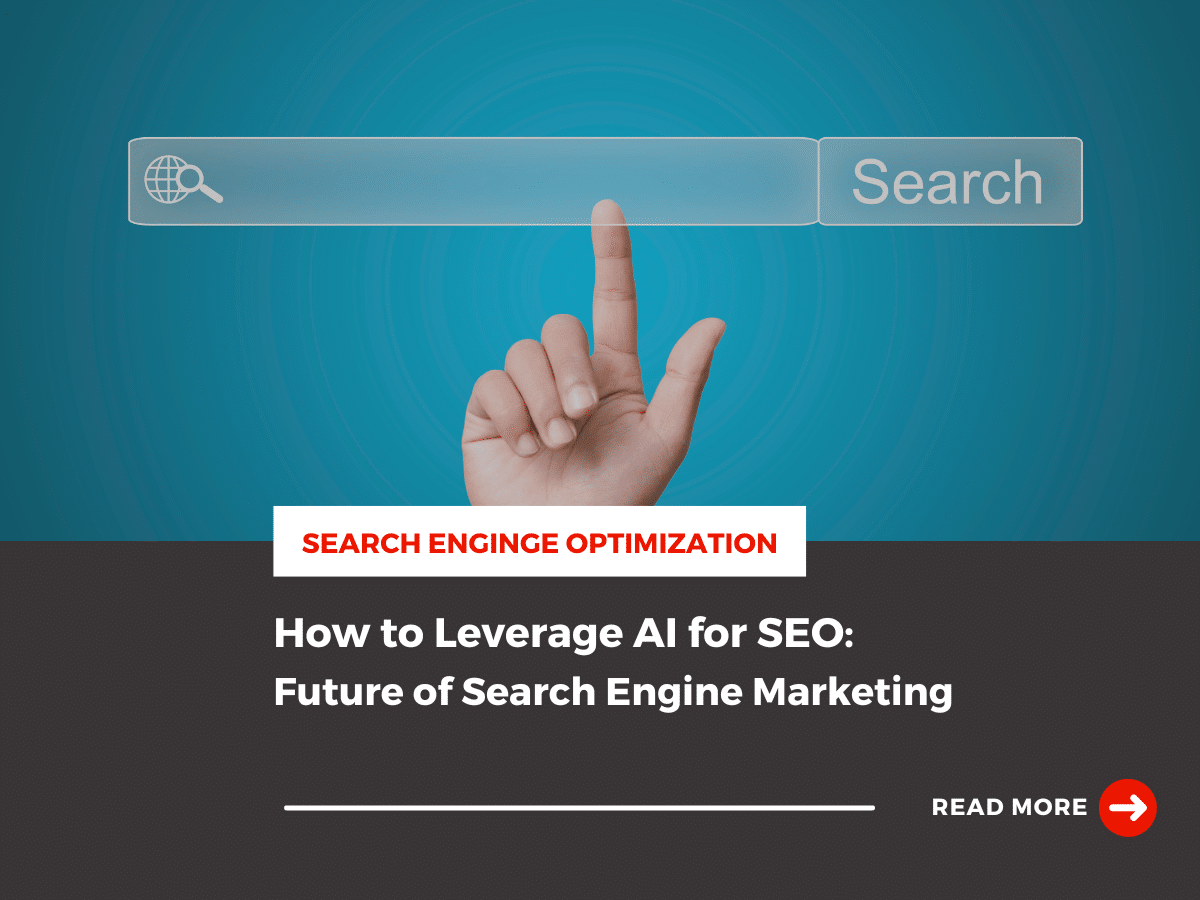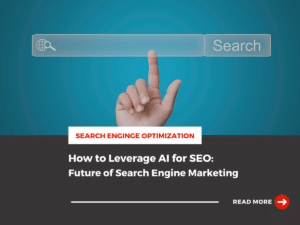By now, you’ve likely heard of the release of ChatGPT. This is an AI-driven tool created by OpenAI. It’s designed to have human-like interactions with individuals, answer queries, look for information on the internet, and assist with everyday tasks. In late December, Google issued a “code red” in response to the rapid increase in popularity.
While ChatGPT does pose a serious threat to the world of SEO and the Google Algorithm, tools like these can help support everyday SEO activities.
Think of AI-driven SEO as more of a helping hand. No, they won’t be replacing your marketing team anytime soon. However, your marketing team can leverage these AI-based search and AI SEO tools to improve workplace productivity and build a killer SEO strategy that delivers results.
Let’s discuss the future of search marketing, the rise of artificial intelligence in marketing, and how you can use these tools to support your day-to-day functions.
What is Artificial intelligence (AI)?
Artificial intelligence is when technology and computers utilize human intelligence processes to interact with individuals. These processes can help with real-world applications, such as customer service, information gathering, data analysis, and content creation.
In fact, you’ve likely interacted with an AI-driven tool and just don’t realize it. All unmanned chatbots on websites, voice assistant tools like Siri or Alexa, and even Apple maps are AI-driven tools.
In today’s digital age, these tools have slowly become an integral part of our everyday lives and are slowly transforming the way marketers work, especially with search engine optimization.
How To Use Artificial Intelligence in SEO Marketing
Like we said before, AI-driven SEO tools are designed to support your day-to-day activities, not replace them. They are designed to help simplify the process and give you the tools to focus on big-picture projects and important tasks that require a human touch.
Here are a few ways you can incorporate artificial intelligence in marketing:
Content Creation and Optimization
AI technology can help you refine your content strategy and take a more strategic approach to content creation. There are tools designed to help generate SEO-optimized titles for blogs, meta descriptions, and generate structured data.
AI-driven tools can also help with the creative side of content. It can help you find quotes and stats to use within your content, brainstorm topics, and find new opportunities to strengthen your SEO strategy.
Don’t forget – Google prioritizes content written by humans, for humans. While AI tech can help you write your content, Google can detect if the content is written by an AI tool. You should always prioritize well-written content that is value-driven and purposeful.
Competitor Analysis
Conducting a full-fledged SEO competitor analysis is a daunting task for your marketing team. It’s a tedious task that requires quite a bit of downtime. However, With AI, you can gather all the business insights you need to critically think about your own strategy.
Whether it’s an in-depth look at their target audience, keyword usage, or any other trends you need to keep top of mind to be more strategic with your approach.
Stay Ahead of Google Algorithm Changes
As you may already know – The Google algorithm is constantly changing. Every year, Google rolls out several new updates that can affect your overall SEO strategy and search engine rankings.
To stay ahead of these algorithm changes, you’ll need to perform regular site audits. If you aren’t performing regular audits, there could be something on your site that Google doesn’t like, which can negatively impact web traffic and your overall rankings.
With AI-backed tools, you can analyze your website and see if your site still meets the current algorithm standards. This allows you to stay ahead of the curve, giving you the tools to make impactful changes to your website on a regular basis.
Keyword Research
Keyword research is arguably one of the most important aspects of an SEO strategy. However, it can be a time-consuming, tedious process to take on. Every time you write a blog or refresh a landing page, you must analyze search terms and consider what your target audience may be typing in the search bar.
Artificial intelligence takes some of the heavy lifting out of the keyword research process. These tools can help with:
- Creating a list of keywords based on search intent
- Translate a list of keywords into different languages
- Generate a list of content ideas based on a keyword
- Find keyword clusters
According to research, only 0.0008% of keywords get more than 100,000 monthly searches. If you spend countless hours building landing pages, writing blogs, and refreshing content with the wrong keywords, you’ll never see the results you hope for.
With keyword analysis and artificial intelligence research tools, you can gain the resources you need to finetune your strategy and find new opportunities that help you rank in the SERPs.
Technical Optimization
There is more to SEO than what meets the eye. There’s a technical and content-driven side that marketers need to learn to balance. With the help of AI, you can improve your technical optimization approach and simplify the everyday tasks required. These tools can help you generate structured data, hreflang tags, and rewrite the rules for .htaccess and more!
Voice Search Strategy
Did you know over 27% of the world’s population uses voice search on a mobile device? Voice search is quickly growing in popularity for its convenience. Many individuals rely on voice search for quick answers or solutions. However, this completely changes the tone and keyword usage. Most voice searches are phrases or questions, so content should have a more conversational approach.
AI tools can help you brainstorm new topics that are voice search-friendly options and help you improve your SEO strategy to meet the needs of this unique searching approach.
Link Building
Link building is the process of getting other websites to link back to your site. This is an invaluable part of any SEO strategy that helps you establish credibility and authority.
With AI-driven SEO tools, you can prospect new sites, conduct research, and even generate a list of blogs, websites, and influencers you can reach out to.
User Experience
Since 2021, page experience has played a role in every website’s search rankings. Google defines page experience as a set of signals that gauge how a site visitor experiences your website. This ranking factor is less about the content you create and more about the experience your site provides.
Search engines can determine if your site provides a positive or negative experience for your user. They check to see if your site is mobile-friendly, your page load speed and if you have the proper structure. If the site provides a negative experience or doesn’t meet the mark, it won’t rank. Simple as that.
With the help of AI SEO tools, you can stay ahead of the curve and find inconsistencies in your UX strategy. The tools can analyze your website and mimic the behavior of a search engine to find flaws that can easily be adjusted to improve the page experience.
Take Your SEO Strategy to the Next Level With Kanbar Digital
We’ll be honest – there’s no telling what the future of search marketing is or just how artificial intelligence in marketing will work in the coming years. As marketers, it pays to stay ahead of the trends shaping the future of SEO and look for new opportunities to leverage AI to improve workplace productivity.
Not sure where to start? Contact us today.



